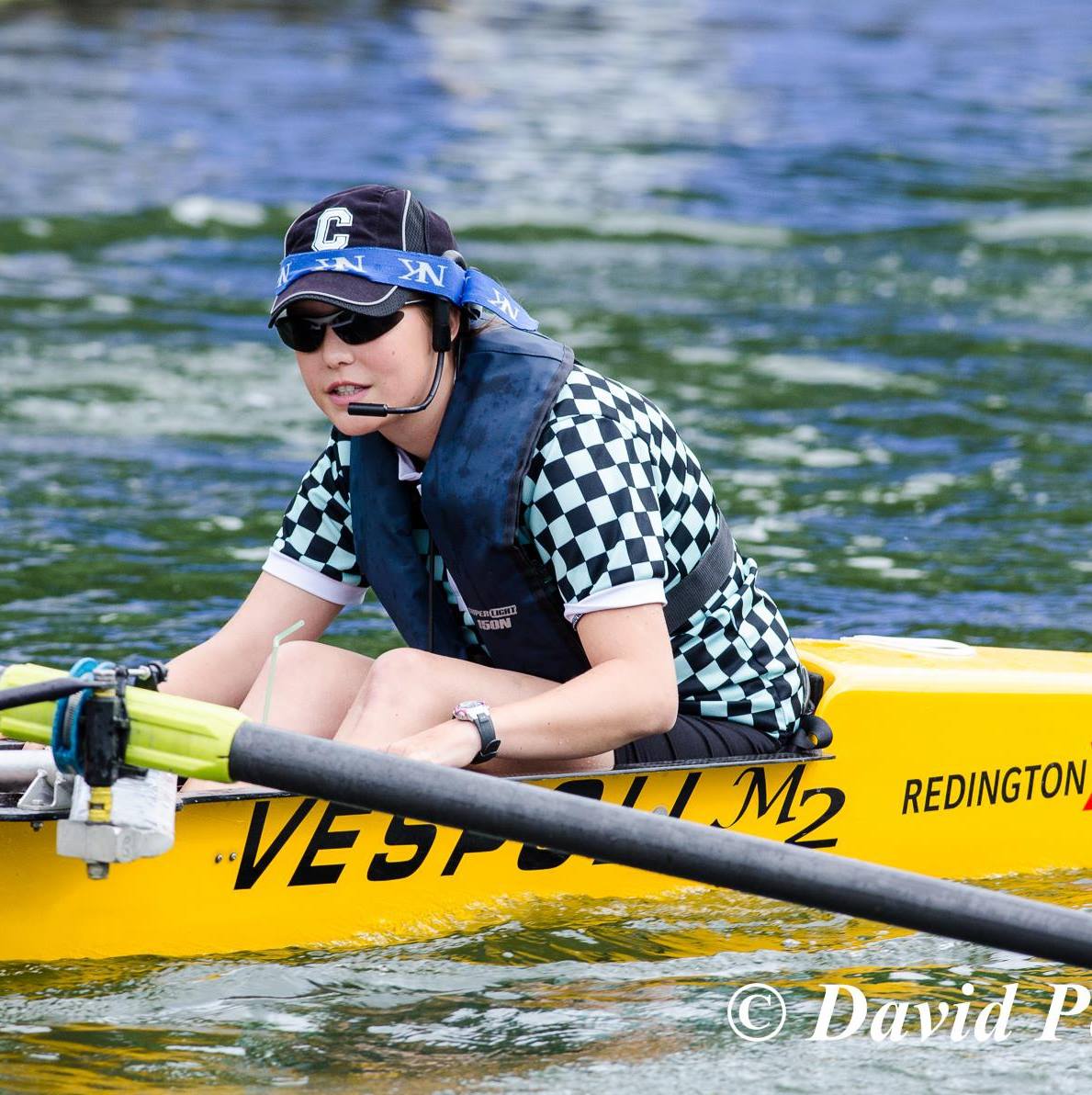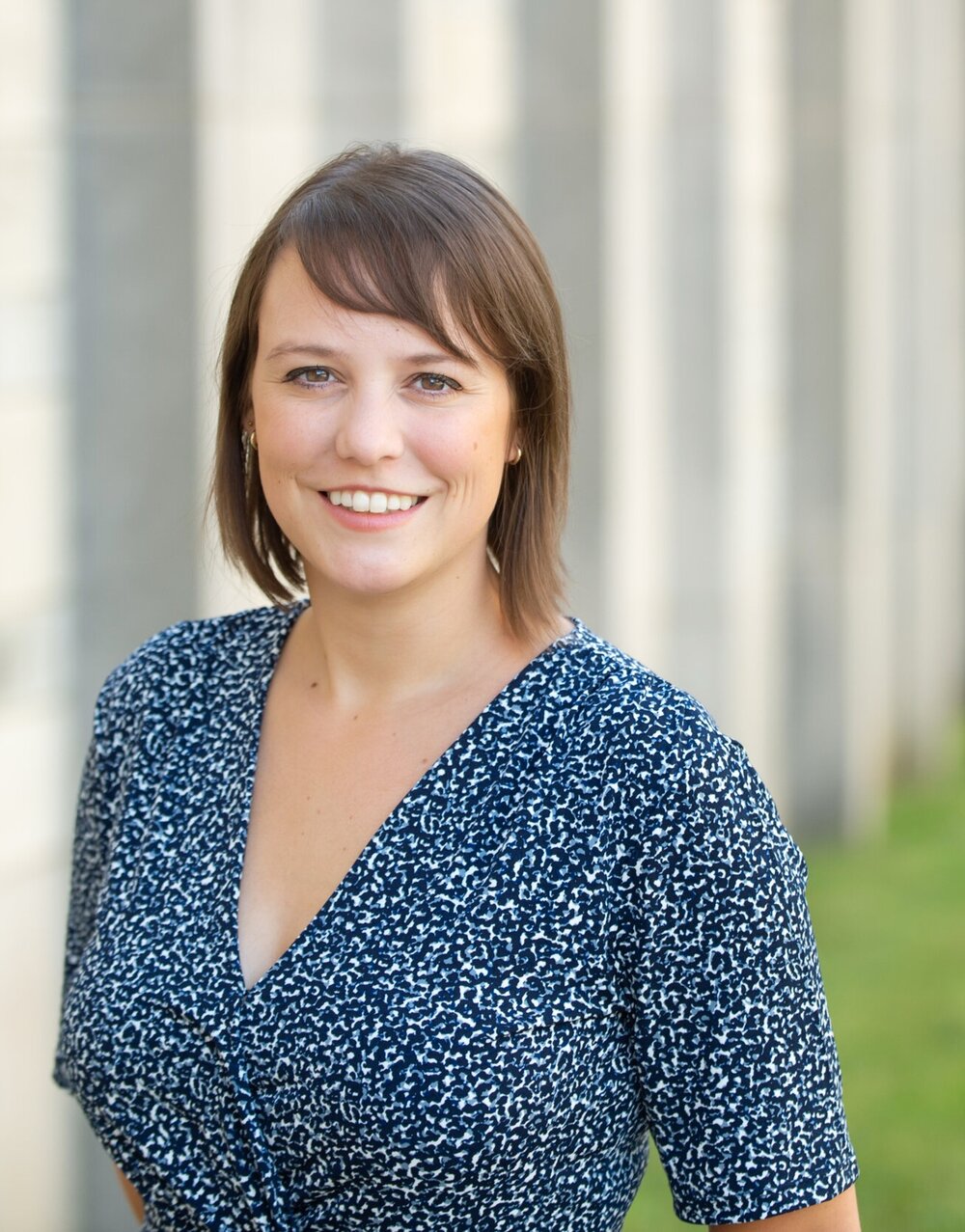
Brielle Stark's research looks at how apps can help stroke patients recover language skills
Many people who have suffered strokes cannot hear the sounds in their head so they find this very hard, particularly if rhyming words don’t look the same.
Brielle Stark
When she started her PhD in 2012, Brielle Stark knew that she wanted to study the impact of strokes on language skills. Her uncle had suffered a bad stroke in her first year of university and she had witnessed the impact of that on her family. Brielle eventually decided that she would focus on language rehabilitation and thought about devising her own therapy programme. However, she realised she didn't have the expertise so decided to research what was already out there.
Language therapy apps seemed the best option since they can be accessed on a tablet in a patient’s own home. She says there is no other research she knows of on these apps despite there being around 300 on the market. Brielle researched many of the apps before finding Tactus Therapy Solutions, a company which produces Language Therapy, the app she has used. Unlike many of the others, who were developed by non-professionals in the field, it was developed by a US-based speech therapist. Moreover, it alerts her via email every time one of her patients uses it and allows those who use it to self-direct their therapy by choosing the difficulty level and type of language therapy they'd like to work on.
Brielle, who recently presented an abstract on her research at the European Stroke Conference in Vienna, Austria, works with people who are one year or more on from a stroke and who have not regained full language function.
She has just completed her research on 10 patients, each for 12 weeks with a six-month follow-up, who were recruited via Addenbrooke’s Hospital. They use the Language Therapy iPad app to improve their language skills in a host of language areas which they struggle with such as naming, comprehension reading and writing. One portion of the app, for instance, prompts individuals to name a picture based on a series of cues: what does it rhyme with? What colour is it? The app also allows Brielle to monitor how often people are using it.
Her group of patients have good comprehension skills, but low spoken speech skills. She says that even though they have good comprehension skills, they still seem to train themselves on the comprehension part of the app and her hypothesis is that they perhaps use this as a confidence booster before they tackle other tasks on the app.
The results of neuropsychological tests Brielle does on the patients suggests that the app is helping some to improve their naming skills. However, these improvements do not necessarily correlate with the kind of training they are doing. “It’s like the brain was rebooting,” says Brielle.
She is interested in studying the interconnectivity between different language skills in the brain, such as memory and sound or seeing and sound, and how the brain finds other routes when one network is damaged. It's an area we still don't fully understand, she says.
One of skills patients find hardest on the app is a prompt asking what a word rhymes with. “Many people who have suffered strokes cannot hear the sounds in their head so they find this very hard, particularly if rhyming words don’t look the same,” she says.
Disability awareness
Brielle, who is finishing a PhD in Clinical Neurosciences, has been interested in disability awareness from a young age. “When I was 12 I convinced my parents to let me volunteer on a programme for children with autism,” she says. “At 14 I worked at a recreational camp for children with disabilities and did so for the next six years. I have always been interested in disability from an equality perspective and the importance of seeing the person first rather than seeing their disability as a defining factor. It's part of my interest in psychology and an interest in how people perceive each other.”
Brielle [2012], who was born in Princeton, New Jersey, and moved to Ohio when she was 11, comes from a socially engaged family. Her mother is Dean of Business, Information Technology and Criminal Justice at a small community college and just finished running an alternative university programme in a nearby prison and her father, who is retired, used to teach for this alternative programme.
She says she learnt early on how to study and that helped free up her time for voluntary work. “I am very much a visual and oral learner,” she says, “and by knowing early on that I learnt best by speaking things out, I freed up time for other things.”
At high school she played Varsity soccer and got involved in the Red Cross which she carried on as an undergraduate, working on the National Youth Council of the American Red Cross.
As an undergraduate at Bryn Mawr College and at Oxford University, she rowed and was co-captain of the women’s rowing team in her last year at Bryn Mawr. At Cambridge she coxed the Cambridge University Women's Boat Club lightweight women in 2013, and currently coxes and is Overall Captain of Boats for Caius College Boat Club. She is currently putting in an extra 20 hours a week as captain of her college's rowing team as well as tutoring two local A Level students and three undergraduates and teaching Psychology on two summer programmes.
Brielle’s undergraduate degree was in psychology with a concentration on neural and behavioural science and she was particularly interested in the action of medicines and therapies on the brain. Her interest in neuroscience was heightened by her experience of her uncle's stroke and the time she spent with individuals with acquired head trauma at the recreational camp.
As part of her course she had the opportunity to study Experimental Psychology for a year at St Anne's College, Oxford University. Her undergraduate thesis focused on memory processing, using neuropsychological examinations of the brain to find out what was going on in the brains of young adults when they make subjective judgments about “how” they remember something, that is, whether something is recalled with details or without.
She is not sure yet what path she will take after finishing her PhD, whether in academia or consulting, but she knows it will centre around psychology, the subject that has fascinated her from her early years.
Picture credit: David Ponting

Brielle Stark
- Alumni
- United States
- 2012 PhD Clinical Neurosciences
- Gonville and Caius College
Brielle C. Stark, PhD {she/her/hers}, is a tenured Associate Professor in the Speech, Language and Hearing Sciences Department and Program in Neuroscience faculty at Indiana University. Dr. Stark completed her doctoral research in Clinical Neuroscience at the University of Cambridge (UK) as a Gates Cambridge Trust Scholar. She completed her postdoctoral fellowship at the Center for the Study of Aphasia Recovery. She is a proud alumna of Bryn Mawr College. She was honored with the 2021 IU Faculty Excellence in Mentoring Award from the Center for Women & Technology and the 2021 IU Trustees Teaching Award. She is also a trained Peer Reviewer for IU’s Faculty Academy on Excellence in Teaching. In 2021, she was named one of four Distinguished Aphasia Scholars USA, a national award given by the Tavistock Trust UK. Brie was awarded the Outstanding Junior Faculty Award for 2022-2023 from Indiana University Bloomington. She won a Fulbright Research Award to conduct research on virtual reality for facilitating speech and language post-stroke at the University of Technology Sydney (AUS), for spring 2025.
As of July 2023, Dr. Stark is the PhD Coordinator / Director of Graduate Studies for the Department of Speech, Language and Hearing Sciences at Indiana University.
Previous Education
Bryn Mawr College Psychology, Neural and Behavioral Science 2012
Links
https://sphs.indiana.edu/about/faculty/stark-brielle.html
http://www.neuralresearchlab.com
https://www.linkedin.com/in/brielle-stark-10726516












